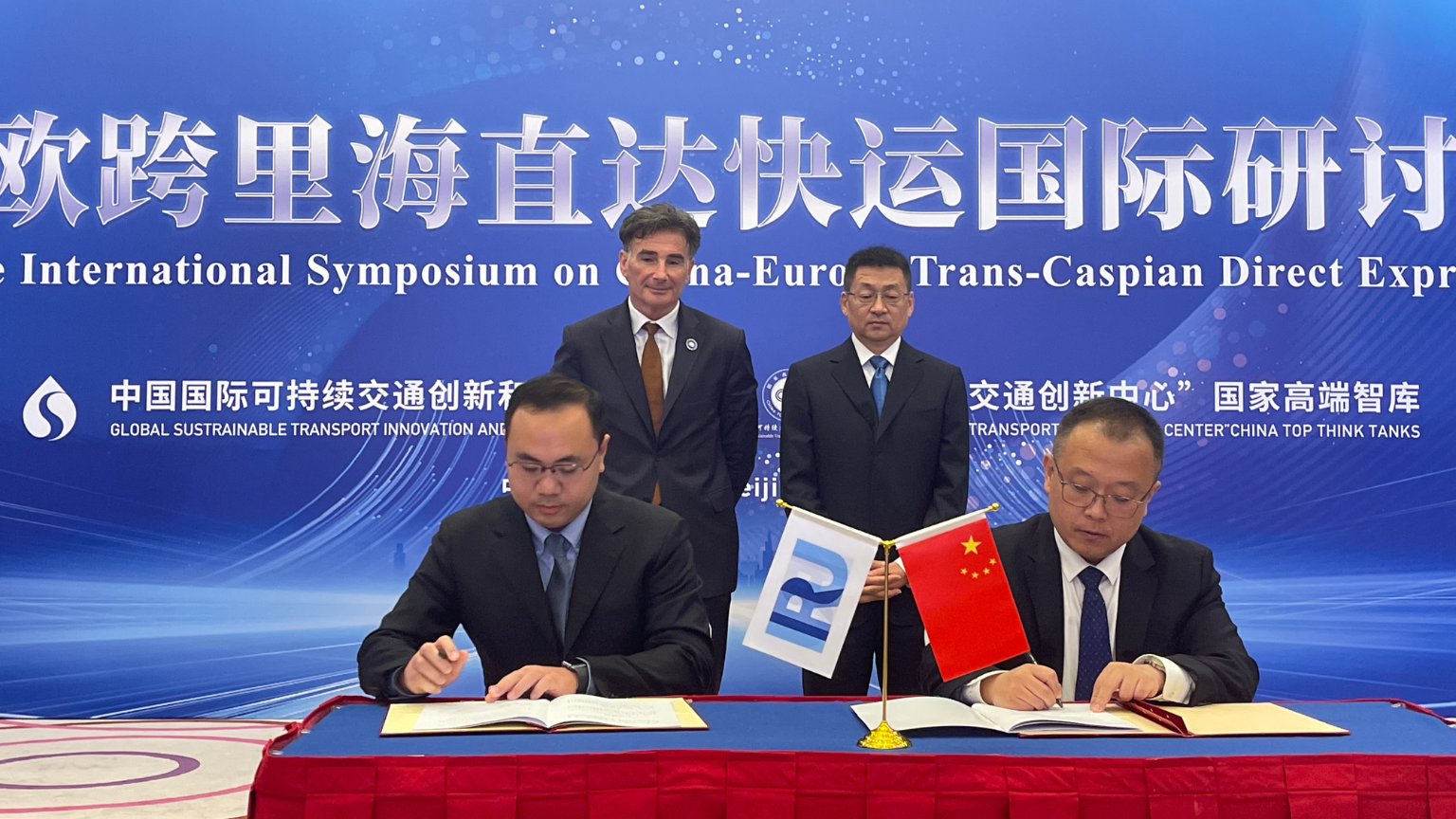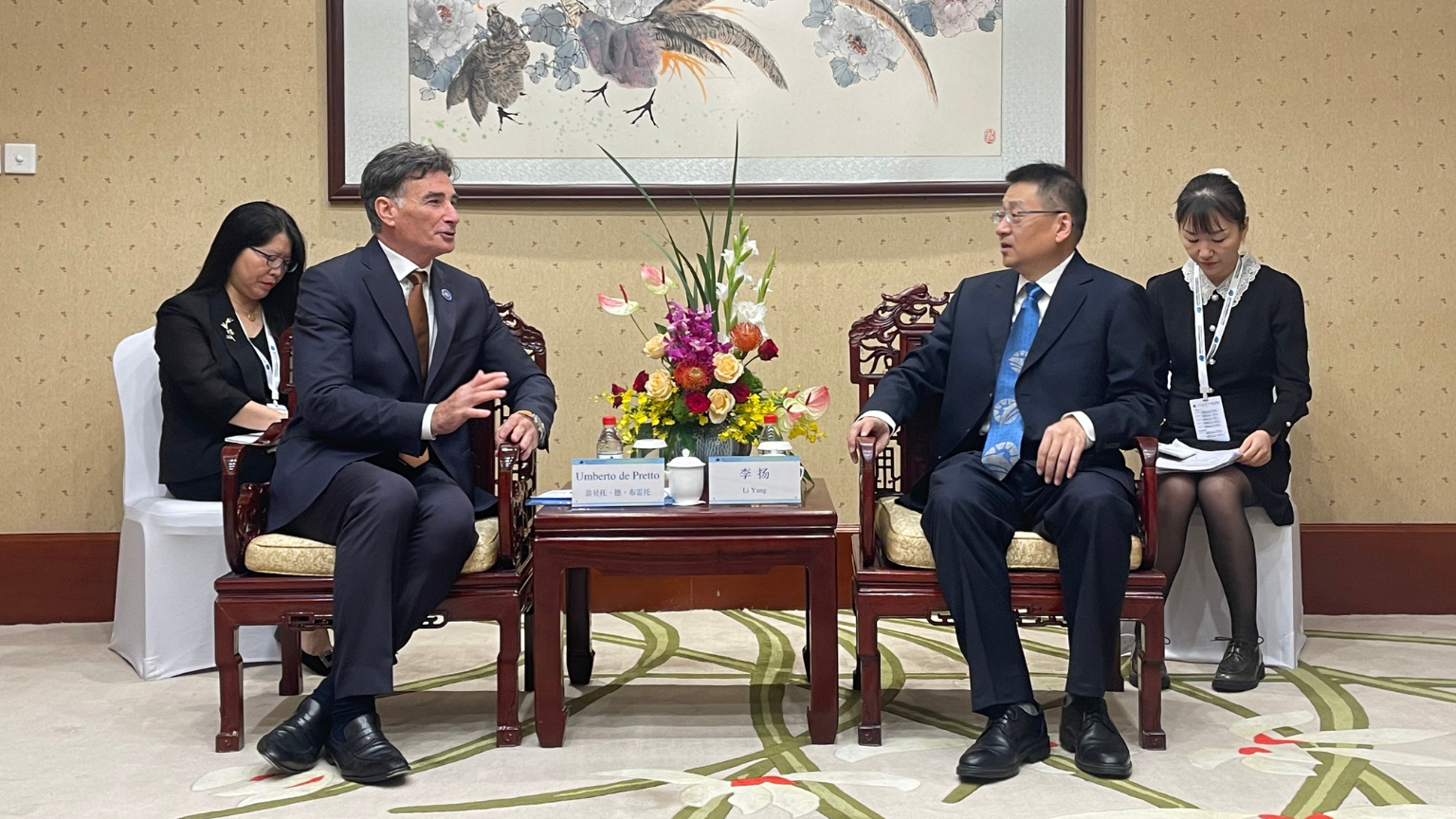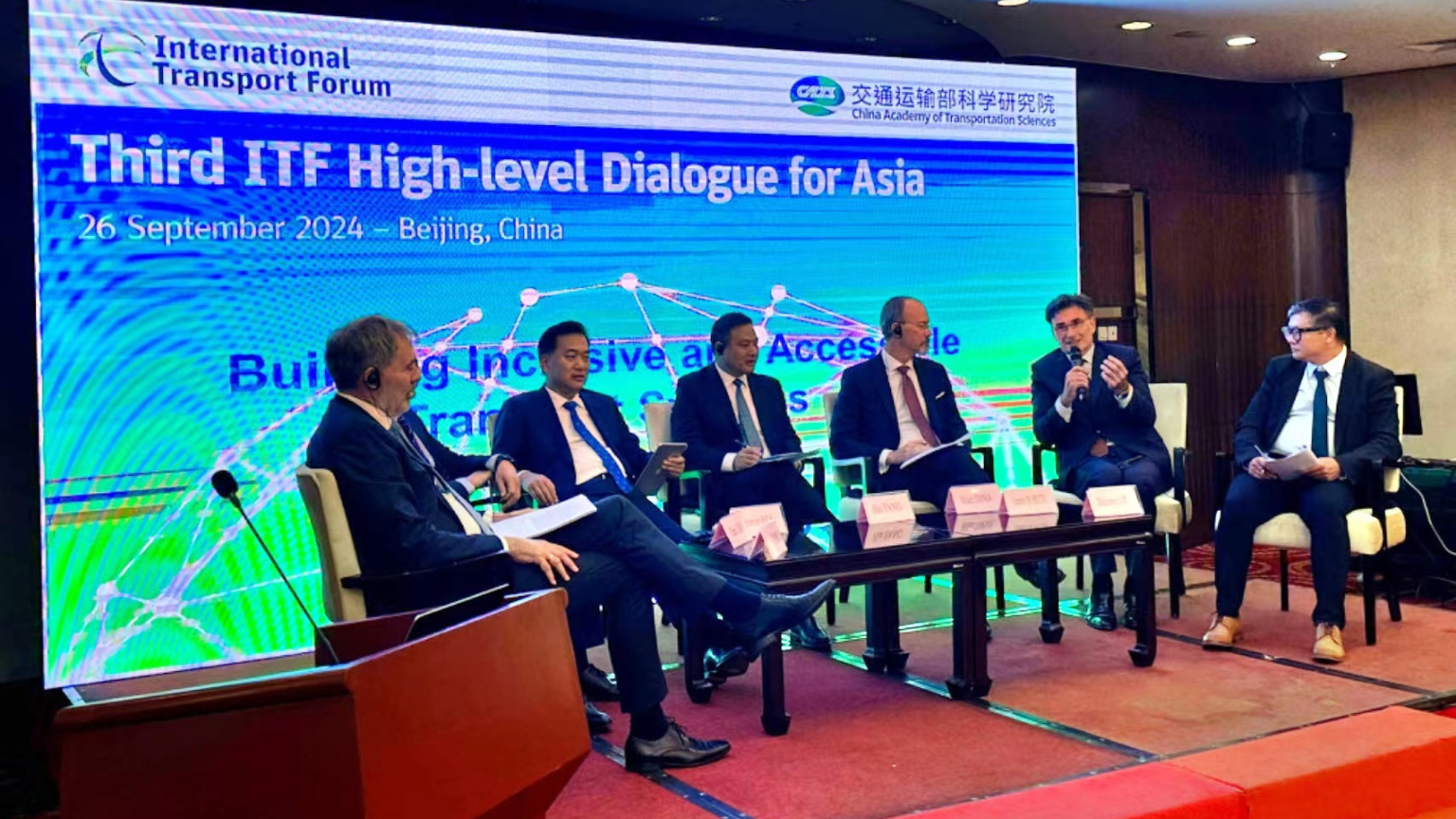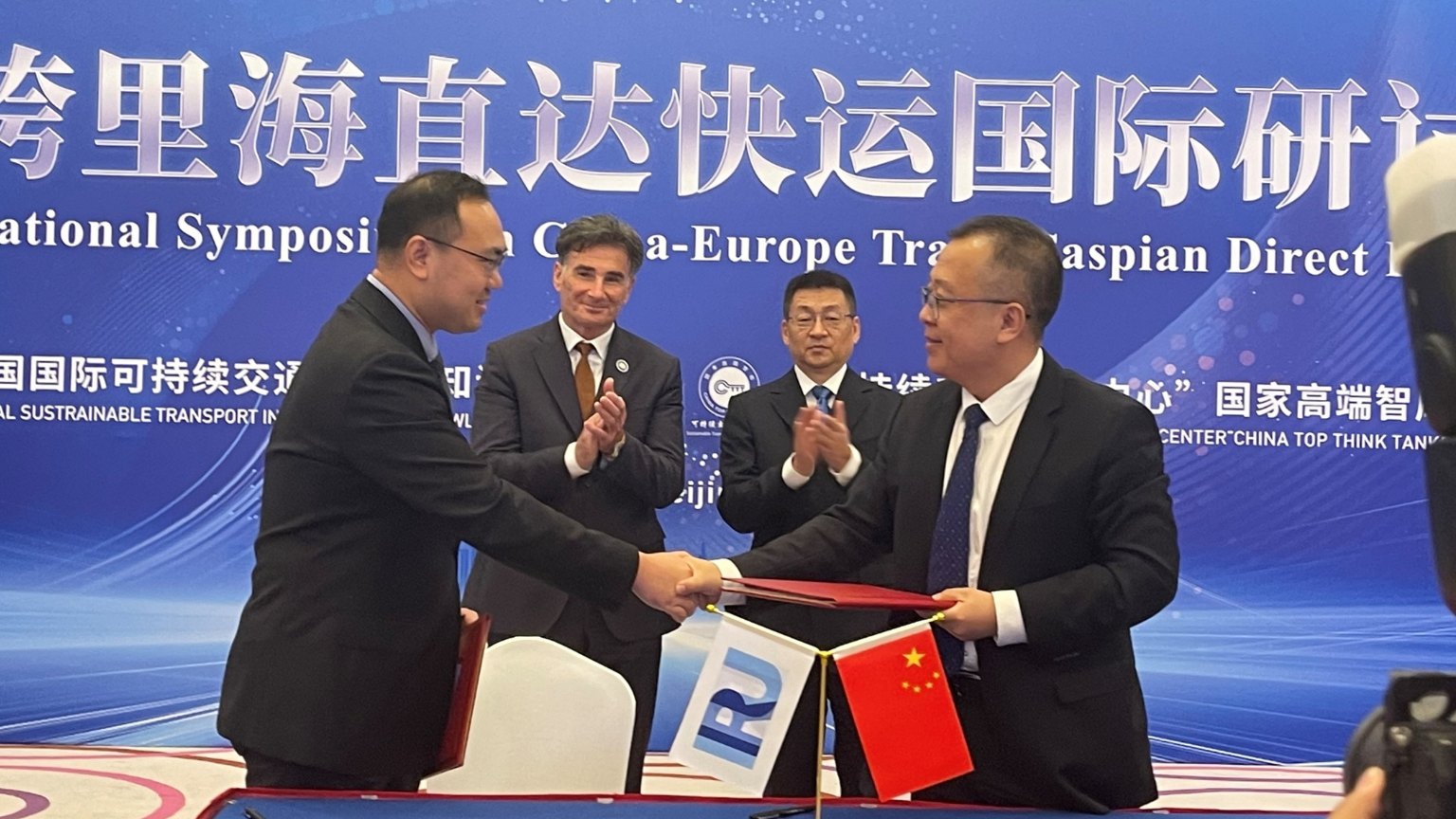Why road transport is the way to go for countries across Asia – and how IRU’s Secretary General and China’s Vice Minister of Transport see the future of cross-border trade.
IRU Secretary General Umberto de Pretto outlined essential measures for inclusive transport at the International Transport Forum’s (ITF’s) Third Regional High-Level Dialogue for Asia yesterday, co-hosted by China’s Ministry of Transport.
IRU Secretary General Umberto de Pretto said, “Road transport is the best tool for policymakers to improve transport shortfalls, including in urban, peri-urban and rural areas.
“Passenger and goods transport by road is flexible and adaptable to changing population and economic dynamics. It also requires significantly less investment to develop new services or expand existing ones. Taxis, which also require minimal public investment, can supplement networks in sparsely populated areas.
“Furthermore, road transport is the ‘glue’ that links all modes together, offering better connected multimodal networks that are inclusive and accessible.
“So how can we increase the availability of road transport and multimodal services? By collaborating. Collaboration between a wide range of stakeholders, including governments at different levels and transport operators is key, but also with vehicle manufacturers and transport suppliers, transport user groups, urban planners and trade unions.”
ITF’s high-level dialogue followed China’s Global Sustainable Transport Forum which took place earlier this week, where IRU highlighted actions to ensure that global supply chains are efficient, resilient and benefit everyone.
Minister bilateral and MoU
Prior to yesterday’s “International Symposium on the China-Europe Trans-Caspian Direct Express” organised on the sidelines of the Global Sustainable Transport Forum, Umberto de Pretto and Li Yang, the Vice Minister of Transport of China, held high-level talks on international road transport.
Li Yang expressed his appreciation for IRU’s ongoing support in advancing China’s international road transport sector and how with TIR and enhanced collaboration with IRU, the full potential of China’s international road transport market can be further unlocked. He then noted how acceding and implementing TIR was a historical decision and step for the road transport industry in China.
Umberto de Pretto underscored the momentum behind TIR growth in China, with TIR now being operational in 28 border and inland cities, connecting China with over 30 countries across Eurasia. This year has also seen three IRU-accredited TIR logistics hubs open in Kashgar, Urumqi and Zhengzhou.
Li Yang and Umberto de Pretto agreed on the importance of improving international exchange and cooperation with governments, associations and businesses from countries along the Trans-Caspian corridor to improve transport facilitation and promote sustainable corridor development.
They also stressed the necessity to simplify the admission and inspection procedures for Chinese TIR hauliers and vehicles to continue supporting TIR growth in China.
Li Yang expressed the Ministry of Transport’s willingness to further strengthen collaboration with IRU, particularly to promote cooperation with countries along China-Europe corridors and encourage greater use of TIR.
Umberto de Pretto and Li Yang then jointly attended the signing of the memorandum of understanding between IRU and the Ministry of Transport’s Global Sustainable Transport Innovation and Knowledge Center, which focuses on cooperation to develop transport corridors under TIR, support knowledge sharing, and promote sustainable transport.




